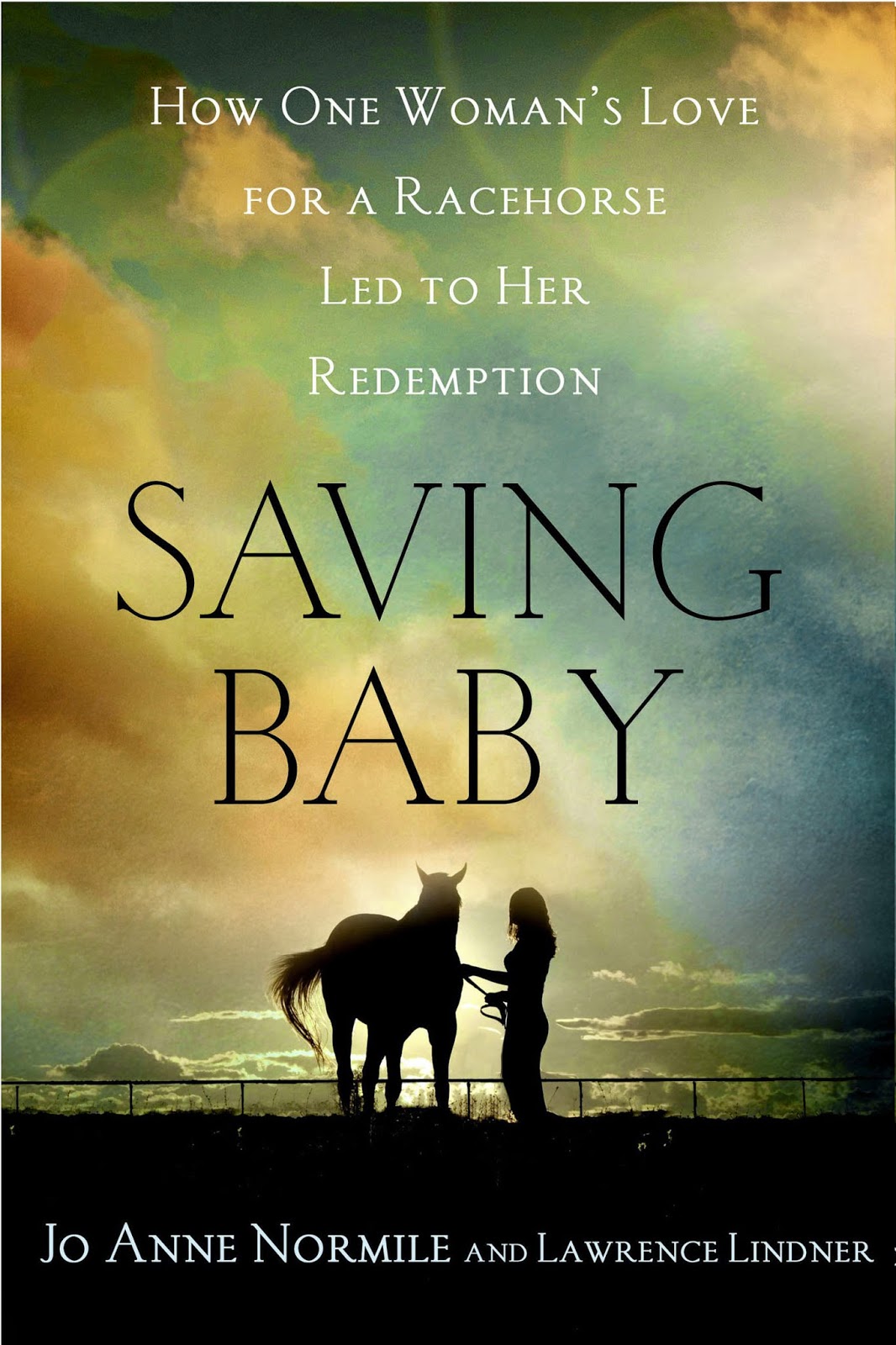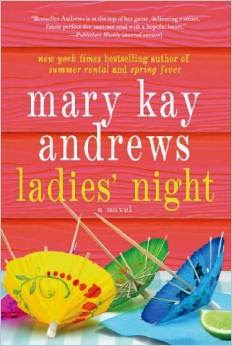Q&A with Jo Anne Normile, author of Saving Baby
 Thank you Jo Anne for stopping by Writer's Corner to share her new novel Saving Baby.
Thank you Jo Anne for stopping by Writer's Corner to share her new novel Saving Baby. How would you characterize this book?
I consider it a love story. It is my homage to Baby, who came into my life unexpectedly but turned out to be the horse of
my dreams, the horse who changed my life.
Is that why you wrote it, to express your love for him?
Anything I said about Baby would show my love for him. But actually, I wrote it out of frustration.
What do you mean?
I
was trying to change horseracing, to change the way people think of it.
There’s much wrong in the industry with drugging
horses and putting them through other abuses, which I learned when I
had Baby at the track, and I kept trying to change the system through
traditional channels. I would write letters and then e-mails to those in
the top echelons of racing, I met with government
officials, submitted materials to a watershed Congressional hearing in
Washington. I even took a track to court for how it treated my horse and
came away with a sum I found meaningful. But the status quo in racing
has remained the same, with horses’ well-being
too often sacrificed for the bottom line. I couldn’t deal with the
frustration anymore, so I decided to take the truth directly to the
public – to change the industry from without because I wasn’t able to
effect change from within.
How do you want to change people’s perception of racing?
Racing
is seen as a rich man’s pastime, as a combination of beauty and brawn.
The well-heeled owner holds the shiny trophy
while the Thoroughbred, gleaming and sinewy, is covered with a blanket
of red roses. I know the allure all too well. When I used to stand at
the rail while the horses trained, the ground literally shook as they
ran by, a breeze stirring up and hooves sounding
like strengthening thunder as they came closer. It mesmerized me. It’s
hard not to be moved when the earth literally trembles.
But
the reality is that the racing industry treats horses like dice or
decks of cards. When they are used up, they are discarded,
treated as harshly as you can imagine. Even during their racing careers
they are generally thought of as investments rather than sentient
beings.
Many
people have dogs or cats, and it’s easy for them to understand that
each one has his or her own personality, his own
likes and dislikes, his own quirks. They have no trouble getting the
concept of falling in love with a particular house pet. But what many
don’t realize is that it’s the exact same thing with horses. Each one is
unique. Each one knows what it’s like to love
and feel loved, to bond. Horses are extremely intelligent, too. They
have extraordinary memories and an extraordinary capacity for learning.
So for them to be treated like investments – inanimate objects to be bet
on rather than the thinking, feeling creatures
they are – makes their plight unimaginably difficult. They are fully
aware of what they are being put through.
But isn’t racing a sport? Don’t the horses like to run? You keep calling horseracing an industry.
Horseracing
is no more a sport than greyhound dog racing, or cock fighting. It is a
$40 billion gambling industry. And money
and animals never mix. People may sometimes win, but the animal always
loses. Furthermore, horses like to run only the way dogs do. If you see
a horse out in a pasture, he might run if he was just let out or
something startled him, graze a bit, stand still
for a while, then maybe scratch the back of a fellow horse with his
teeth. He would never choose to run around as fast as he could in a
circle. He has no concept of a finish line, or of competing to reach
it.
What do you hope to accomplish with this book?
Well,
first, I want people to fall in love with Baby the way I did, to inform
them about the kind of animal a horse really
is so they can understand at a gut level why it is wrong to mistreat
horses at the track. This is a true story. It happened, and it is still
happening to many, many other horses, and I am so frustrated that people
aren’t aware. They tune in to watch a race
like the Kentucky Derby, and they have Derby parties to celebrate the
horses. And the animals are gleaming; they are magnificently beautiful.
But
people need to see the other side, the hidden side of the backstretch
that racing keeps from them – not just from the
public in general but also from the bettors. Would you walk into a
casino if you knew the cards were marked and the dice were loaded? No,
you would not. The casino would get a reputation and lose all its
business. Well, along with horses being abused, people
are betting on what amount to fixed races. No one in the grandstand
knows which horse has a nerve to his foot severed so he won’t feel an
injury and will be able to run faster. No one knows which horses have
been given illegal performance enhancers or even
legal drugs – except people on the backstretch who ordered those drugs,
and who are also allowed to bet. The bettor in the stands has to be
told whether the horse is wearing blinkers, but if he has received 17
injections within a week of a race, that’s not
disclosed. It’s hard to know that racing operates like this and not
feel angry. These abuses are not allowed anywhere in the UK or other
European countries, South Africa, Japan, Hong Kong, Dubai and many other
places where horses race. And every time I hear
about them and know that the industry has gotten away with it, I feel
they’re abusing Baby all over again.
But can reading a book help to change an industry?
Absolutely.
I don’t think people in the main mean harm. I think they simply don’t
know. But if even a few people read it,
and they can change a few more people’s minds, and save a few more
horses…well, that builds to a groundswell. We have a compassionate
society, and we’re on the threshold of a decision. Do we continue to
exploit horses or any animal for financial gain? Or are
we going to make a change, view things in a new light? Once people are
aware, it will be easy for them to go where their conscience leads them,
like mine did. Together we can make it happen.



Comments
Post a Comment